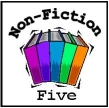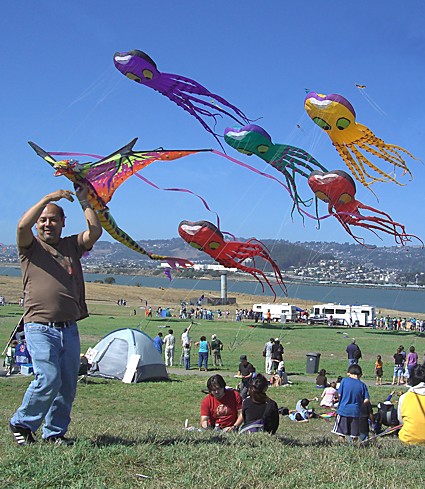‘Self-Consciousness’ review at Metapsychology
July 31, 2007
Metapsychology, a great site for book reviews, has published a review of Self-Consciousness, the recent book by Sebastian Rödl.
Powered by ScribeFire.
books on the mind, consciousness, cognitive science…
July 31, 2007
Metapsychology, a great site for book reviews, has published a review of Self-Consciousness, the recent book by Sebastian Rödl.
Powered by ScribeFire.
 I’m just squeaking in under the wire for my July selection in the Non-Fiction Five Challenge – The Cincinnati Arch: Learning from Nature in the City
I’m just squeaking in under the wire for my July selection in the Non-Fiction Five Challenge – The Cincinnati Arch: Learning from Nature in the City. [For this reading challenge I picked non-fiction titles that are outside the usual scope of my reading and of this website.]
This book turned out to be not so much a natural history of Cincinnati, but more of a meditation on overcoming the apparent dichotomy between wilderness and city. The author had identified himself as a wilderness lover, so at first he sees his move to the city as a kind of exile. (The first chapter is titled “The Road of Exile.”) Eventually he comes to see the natural world as a continuum that includes the city, and he arrives at a ‘practice of the wild’ (Gary Snyder’s term) that can embrace all aspects of experience.
Here is a ‘mind-related’ excerpt:
…the house feels like a spacesuit, a diver’s mask, or a suit of armor, a fabricated refuge that keeps my body comfortable so that my mind can work on matters of its choosing. Without the house, the body’s needs would always be clamoring for attention: “Feed me!” “Keep me warm!” But with those needs taken care of by the house, the mind can go its own way, attentive to ideas and dreams. So the house represents a kind of refuge or escape from nature, which is construed as whatever exists outside the organism and, ipso facto, forces it to pay attention. The house allows the mind to pay attention to itself. (p. 56, emphasis mine)
On the practice of the wild:
Wild practice is first and foremost a local practice. You always have to do it right here. Wild practice has an aspect of attentiveness: learning the other creatures and their ways, keeping watch, waiting for things to emerge, learning to see the unseen. There is also an aspect of mindfulness, of repeated acts deliberately composed, of discipline projected over the long term. There is an aspect of relation: dancing with the wildness of others, participating in local flows of energy, nourishment, and information, all of which comprise what I call husbandry. There is an aspect of homage to one’s origins in landscapes of learning or transformation – call it pilgrimage – and an aspect of reflection and witness that preserves the land’s gifts by sharing them through stories. Five disciplines, in sum, are necessary: attentiveness, mindfulness, husbandry, pilgrimage, and witness. (p. 123)
He then goes on to talk about applying this practice at different levels of relationship – personal, community, and ecological.
July 29, 2007
Immortality Defended by John Leslie is discussed in the article “Eternity for Atheists” in the New York Times 7/29/07:
Each of us, Leslie submits, is immortal because our life patterns are but an aspect of an “existentially unified” cosmos that will persist after our death. Both Tipler and Leslie are, in different ways, heirs to the view of William James. The mind or “soul,” as they see it, consists of information, not matter. And one of the deepest principles of quantum theory, called “unitarity,” forbids the disappearance of information.
Powered by ScribeFire.

Not the Wind, Not the Flag
Two monks were arguing about a flag. One said: “The flag is moving.”
The other said: “The wind is moving.”
The sixth patriarch happened to be passing by. He told them: “Not the wind, not the flag; mind is moving.”
[from Mumonkan, in Zen Flesh, Zen Bones p. 114]
July 27, 2007
The Library Thing page for the tag “consciousness”
Top ten “most often tagged Consciousness” as of 7/27/07 (with links to Amazon info):
1. Consciousness Explained by Daniel C. Dennett
2. The Origin of Consciousness in the Breakdown of the Bicameral Mind by Julian Jaynes
3. The Conscious Mind: In Search of a Fundamental Theory by David J. Chalmers
4. The Feeling of What Happens: Body and Emotion in the Making of Consciousness by Antonio R. Damasio
5. The Mind’s I: Fantasies and Reflections on Self & Soul by Daniel C. Dennett and Douglas Hofstadter
6. Kinds of Minds: Toward an Understanding of Consciousness by Daniel C. Dennett
7. The User Illusion: Cutting Consciousness Down to Size by Tor Norretranders
8. Consciousness: An Introduction by Susan Blackmore
9. Wider than the Sky: The Phenomenal Gift of Consciousness by Gerald M. Edelman
10. The Mystery of Consciousness by John R. Searle
I’ve read #1, 2, 4, 7; have in my library #3, 5, 6.
[Note: I’ve set up links to open in a new window because I thought that would work better with a list — but it might conflict with pop-up blocking, so I apologize if that’s at all annoying.]
